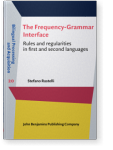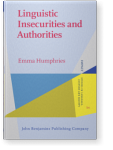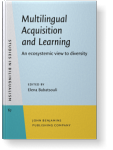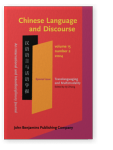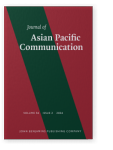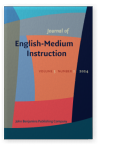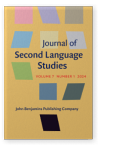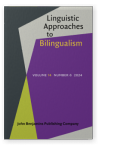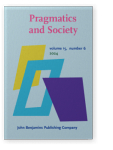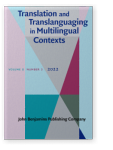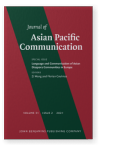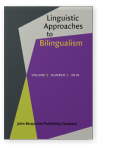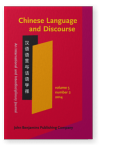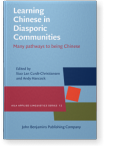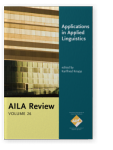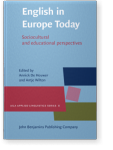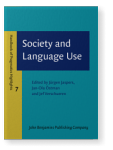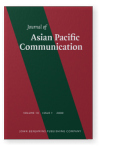Li Wei
List of John Benjamins publications for which Li Wei plays a role.
Book series
Journals
ISSN 1877-7031 | E-ISSN 1877-8798
ISSN 0957-6851 | E-ISSN 1569-9838
ISSN 2666-8882 | E-ISSN 2666-8890
ISSN 2542-3835 | E-ISSN 2542-3843
ISSN 1879-9264 | E-ISSN 1879-9272
2022 Tomorrow? Jayaji ! ( 자야지 ): Translation as translanguaging in interviews with the Director of Parasite Translation and Translanguaging in Multilingual Contexts 8:3, pp. 260–284 | Article
Translanguaging refers to the dynamic meaning-making process whereby multilingual language users make full use of their communicative repertoires by crossing the boundaries between named languages and other semiotic and modal resources (García and Li 2014). Director Bong Joon-ho is… read more
2021 The dynamics of contacts and multilingual practices in the Chinese community in Britain: Revisiting Social Network Analysis Language and Communication of Asian Diaspora Communities in Europe, Wang, Zi and Florian Coulmas (eds.), pp. 279–297 | Article
This article revisits the application of Social Network Analysis to the study of language maintenance and language shift in the Chinese community in Britain. An approach that focuses more on individual variations, including variable behaviours by the same speaker in different contexts, is… read more
2018 The acquisition of the weaker language: Evidence from the acquisition of Russian cases by a Turkish-Russian child Linguistic Approaches to Bilingualism 8:5, pp. 637–663 | Article
This study contributes to the discussion about the status of the weaker language (WL) by investigating whether reduced input in Russian in a Turkish-dominant environment is sufficient for monolingual-like acquisition of the WL. We focus on the acquisition of Russian cases by a Turkish-Russian… read more
2014 Review of Yanbin (2011): Studies of Wenge Language Chinese Language and Discourse 5:2, pp. 281–284 | Review
2014 Chapter 6. Language and literacy teaching, learning and socialization in the Chinese complementary school classroom Learning Chinese in Diasporic Communities: Many pathways to being Chinese, Curdt-Christiansen, Xiao Lan and Andy Hancock (eds.), pp. 117–136 | Article
The Chinese complementary schools for overseas-born ethnic Chinese children provide an interesting, complex and forever changing context where the teaching and learning of the Chinese language, especially literacy, is intertwined with the teaching and learning of Chinese cultural values and… read more
2013 Diaspora: Multilingual and intercultural communication across time and space Applications in Applied Linguistics: AILA Review, Volume 26, Knapp, Karlfried (ed.), pp. 42–56 | Article
The nature of diaspora is changing in the 21st century. Yet many of the communication issues remain the same. At the heart of it is multilingual and intercultural communication across time and space. There is much that applied linguists can contribute to the understanding of diaspora in the era of… read more
2011 The early acquisition of English as a second language: The case of young Chinese learners of English in Britain English in Europe Today: Sociocultural and educational perspectives, De Houwer, Annick and Antje Wilton (eds.), pp. 95–112 | Article
One aspect of English in Europe today, particularly in Britain, is the fact that many children with an L1 that is not English acquire English outside the home at a very early age. This paper focuses on the acquisition of English by young Chinese children who were born in China but moved to Britain… read more
2010 Contact Society and Language Use, Jaspers, Jürgen, Jan-Ola Östman and Jef Verschueren (eds.), pp. 127–139 | Article
2008 Contact Handbook of Pragmatics: 2008 Installment, Östman, Jan-Ola and Jef Verschueren (eds.), pp. 1–16 | Article
2000 The concept of self and apology strategies in two cultures Journal of Asian Pacific Communication 10:1, pp. 1–24 | Article
The speech act of apologising aims at maintaining, restoring and enhancing interpersonal relationships. Most of the existing studies of apology in different languages and cultures follow the Brown and Levinson (1987) approach and describe apology as a ‘negative politeness’ strategy. In this paper,… read more
